The iconic little Jimny is finally in India! Five doors, four-wheel drive, manual and automatic choices, high-profile rubber, and that extremely lovable face intact. We put Jim in the Jimny to bring you this first-hand review of this condensed essential SUV.
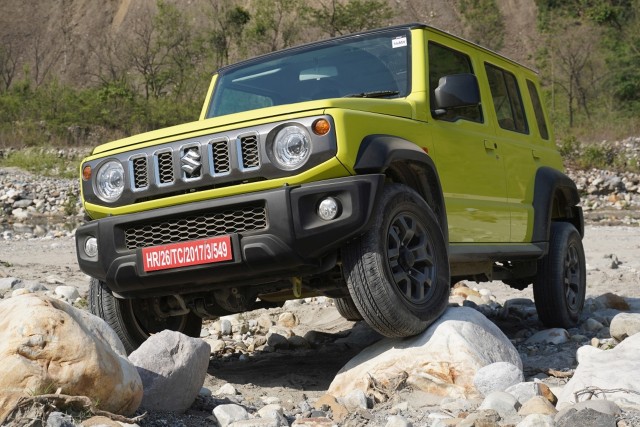
Story: Jim Gorde
Photography: Apurva Ambep
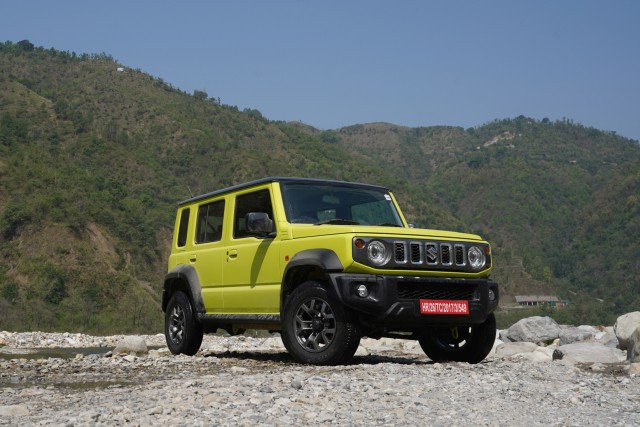
Can a small car be an icon? Of course! And Maruti Suzuki know that more than well enough, what with the 800 and the Gypsy firmly cementing themselves in the history books. The Gypsy, of course, was a Jimny in the global market and, after what feels like forever, the new-generation Jimny—around for a while in three-door guise—now finally comes to India in a new five-door avatar.
The Suzuki Jimny was long rumoured to be coming to India in its previous generation. However, it never did. Now, however, building on the three-door model, the new car that we get here has its wheelbase extended by 340 millimetres to accommodate the rear bench-seat and another pair of doors and that translates into a length of 3,985 mm. The styling, though, is what grabs eyeballs. It looks very distinct and the vibrant shade of “Kinetic Yellow” looks great, with no real connection to Valentino Rossi whatsoever. The five-slot grille is one of the many features the new Jimny retains as visual cues of its design heritage, along with more subtle ones like the round headlamps, low-set tail-light clusters, rear-mounted spare wheel, narrow tyres, and three gills, among others. But, there’s evident evolution. The headlights are projector LED units and have spray-washers, the tyres are Bridgestone Duelers in a special 195/80 size on 15-inch alloy wheels.
It’s not a very tall car. In fact, it is the smallest definitive SUV available in India today. Over extremely challenging terrain, it attempts what a Mahindra Thar or Force Gurkha can do, with the added benefit of its light weight. At just 1.2 tonnes, it weighs as much as a premium hatchback and that figure includes the all-new made-in-India ladder frame, gearbox, transfer case, prop shafts, front and rear differentials, and all the 4×4 hardware that comes with a capable off-road car.
The feel of the door as I get in and shut it is very reassuring; a solid thud and no remaining gap even with a gentle force. The dashboard has a different design from what we’re used to seeing in Maruti Suzuki models, but there is an element of familiarity. The Alpha variant we have here gets a 9.0-inch infotainment touchscreen as well as wireless Android Auto and Apple CarPlay, and a rather nice Arkamys surround sound system, too. The dashboard also has a grab-handle on the passenger side. Below the screen is the climate console, below which is a slender storage space, enough for the key and something similar sized. Further down centre there are two levers, the gear selector and the drive selector for the transfer case. There are two cup-holders and map pockets in each of the front doors—and that’s it.
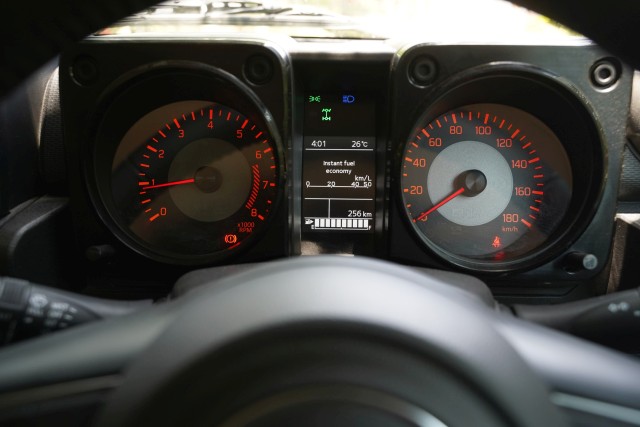
The cabin feels rather cramped for my six-foot tall and rather wide frame. The shape reminds me of the Hummer H2—a flat 90° slab with a front end. However, the interior is quite narrow and best suited to average-sized folk who are less than six feet tall and two feet wide. The rear, too, is easily accommodating for height, with good head- and knee-room, although it’s a car best for four. The boot volume is 219 litres with the rear seats up and 332 litres with them folded down; the former adequate for a big bag or a few small bags. But that’s beside the point. It can be a daily driver, but if one needs to use it as a normal car, this may not entirely work. However, it has a completely different set of strong points.
The Jimny, as mentioned, weighs just 1.2 tonnes, give or take. There are just two trims available for now, Zeta and Alpha, both with selectable four-wheel drive as standard, with a choice of five-speed manual or four-speed automatic. Yes, this is because the engine is the “K15B” 1.5-litre four-cylinder petrol with auto start/stop thrown in. It produces 105 hp and 134 Nm; about 20 hp and 30 Nm up on its predecessor, the 1.3-litre Gypsy King.
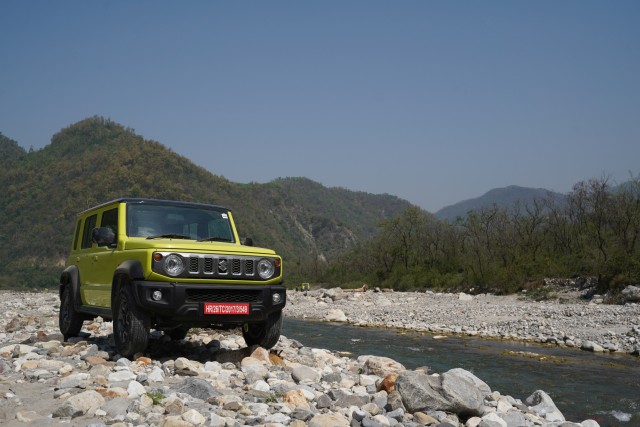




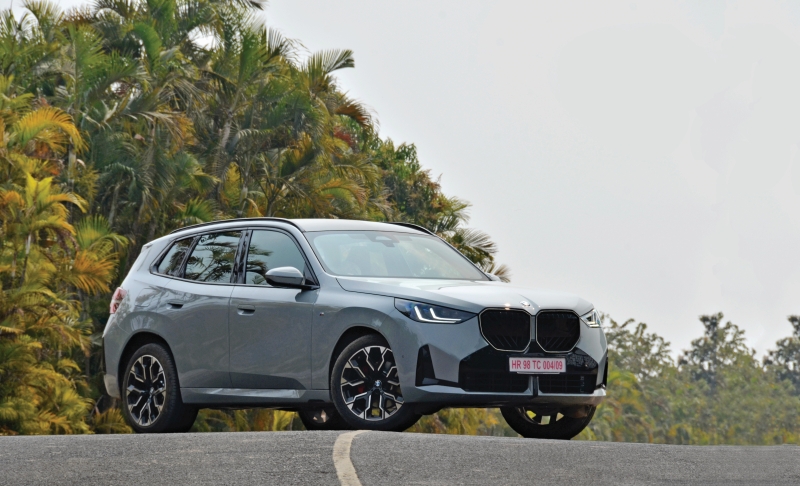


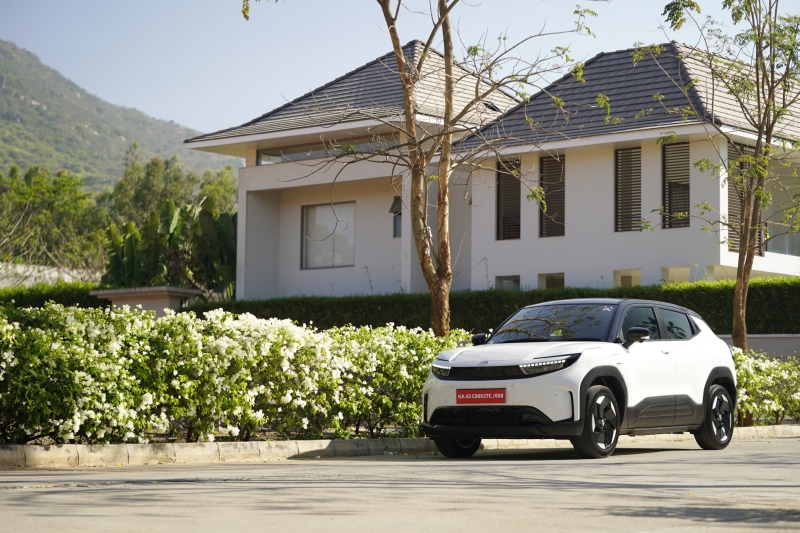
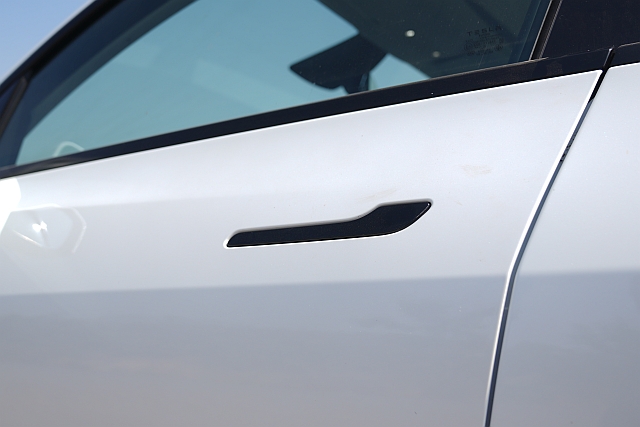
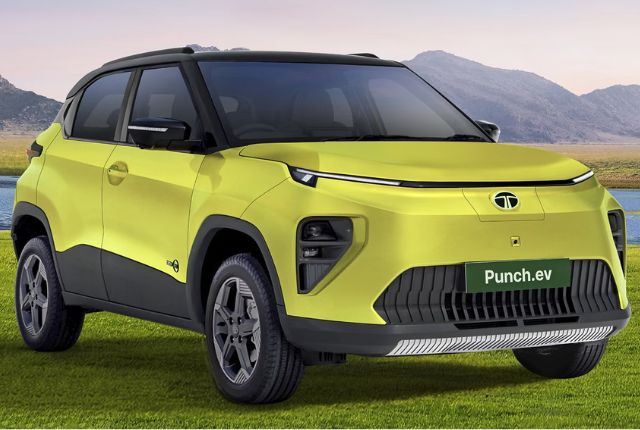
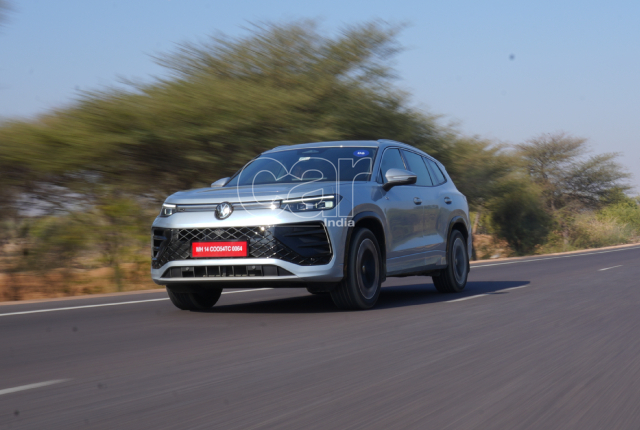
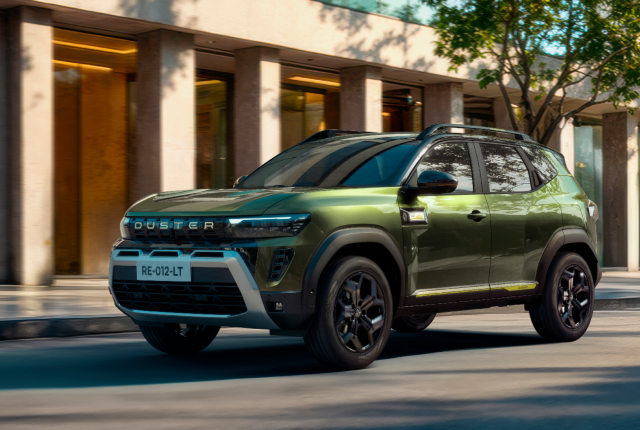

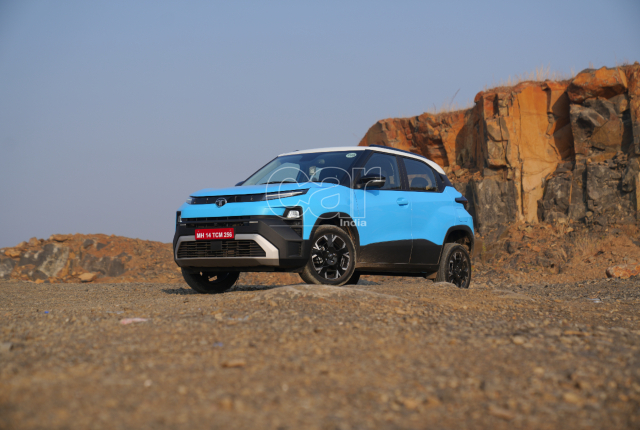
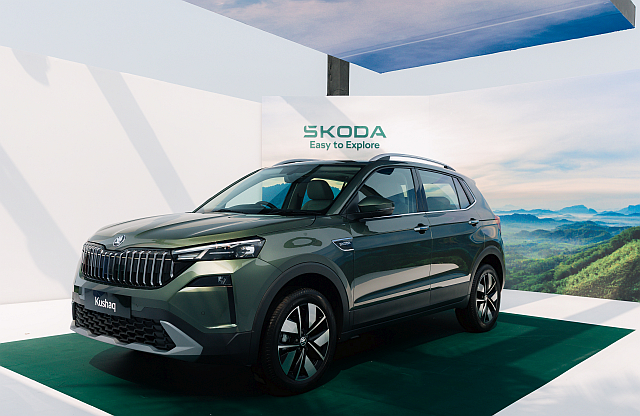
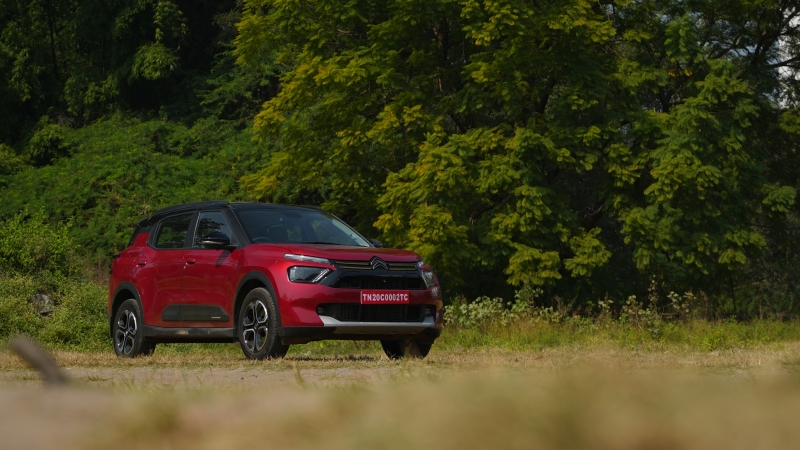
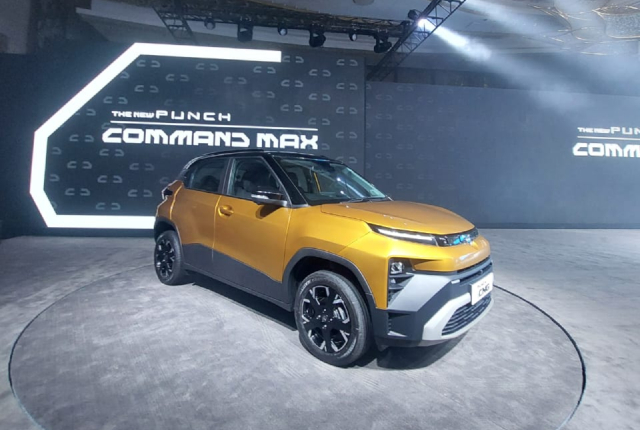
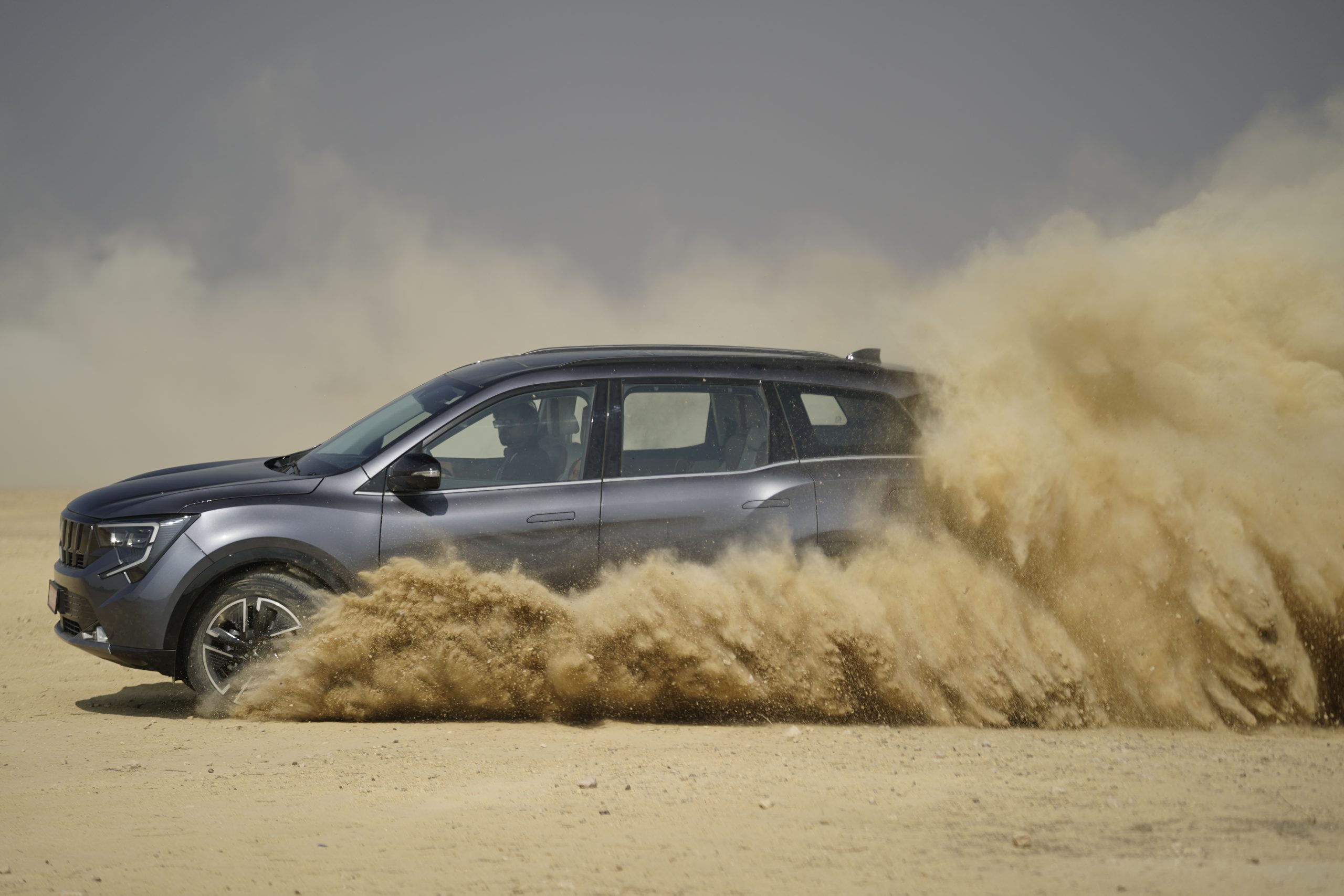
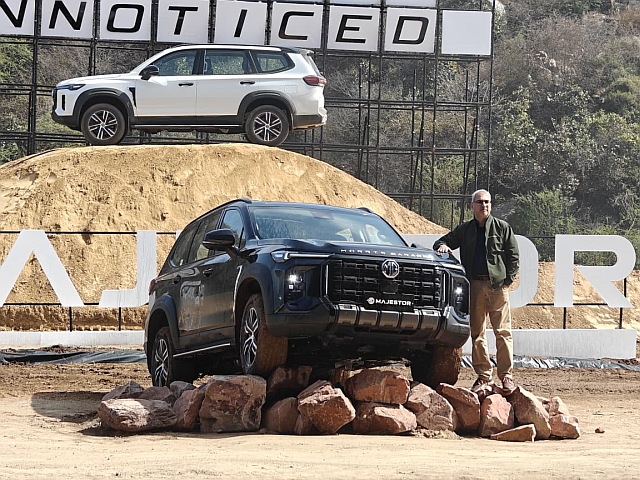
Leave a Reply